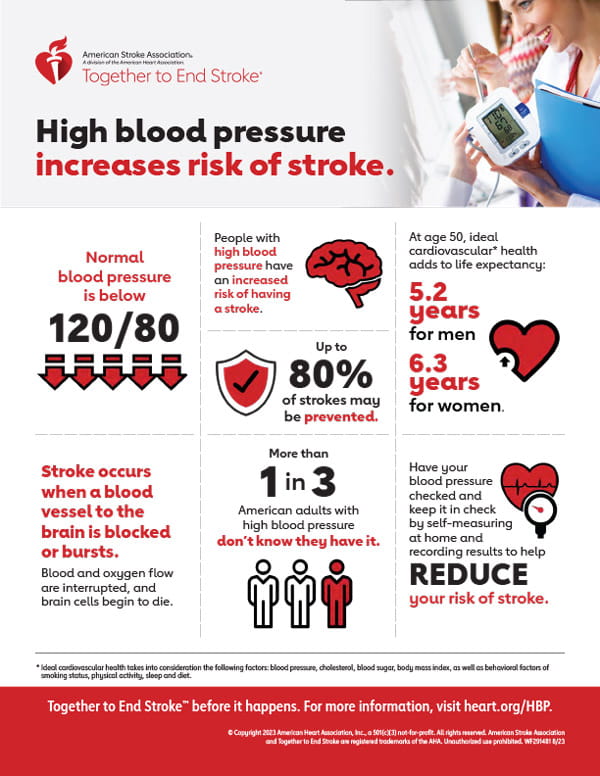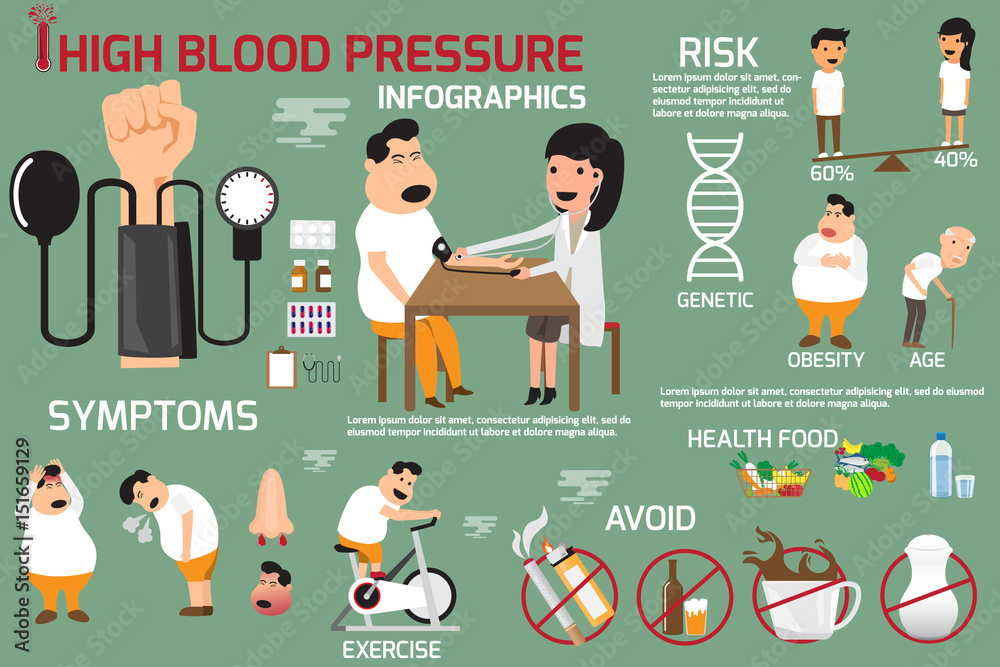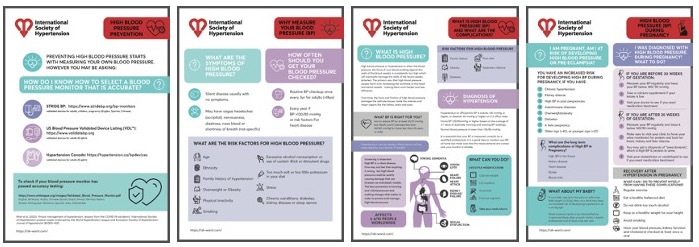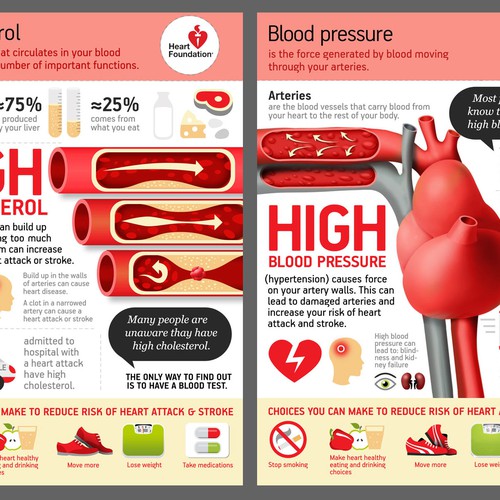Discover the surprising natural remedies that can help you manage high blood pressure and improve your overall health.
Table of Contents
- Introduction to High Blood Pressure
- What is Blood Pressure?
- What Does High Blood Pressure Mean?
- Causes of High Blood Pressure
- Why Should We Worry About High Blood Pressure?
- Spotting High Blood Pressure – Symptoms to Look Out For
- How to Manage High Blood Pressure
- The Importance of Exercise
- Understanding the Consequences
- When to See a Doctor
- Summary
- FAQ Section
Introduction to High Blood Pressure
In this section, we will talk about a very important topic called blood pressure. You might have heard adults talking about it or seen a family member checking it with a machine that wraps around their arm. Blood pressure is something we all have, and it’s essential to understand why having high blood pressure, also known as hypertension, is something we need to be aware of.
What is Blood Pressure?
When we talk about blood pressure, we’re referring to the force of blood pushing against the walls of our arteries as it flows through our body. This force is essential for the blood to reach all parts of our body, delivering oxygen and nutrients to keep us healthy.
Understanding the Numbers
When we measure blood pressure, we get two numbers: the top number (systolic) and the bottom number (diastolic). The systolic number measures the pressure in your arteries when your heart beats, while the diastolic number records the pressure in your arteries when your heart rests between beats. A healthy blood pressure reading for most people is around 120/80.
What Does High Blood Pressure Mean?
High blood pressure, also known as hypertension, is a condition where the force of blood against the walls of the arteries is consistently too high. This means that the heart has to work harder to pump blood throughout the body, which can lead to serious health issues if left untreated.

Image courtesy of www.stroke.org via Google Images
Just like a garden hose with too much pressure can burst, the same principle applies to our blood vessels. When the pressure inside them is too high, it can damage the arteries and put a strain on the heart.
On the other hand, low blood pressure means the force of blood against the artery walls is too low, which can also have negative effects on the body, like feeling dizzy or lightheaded. So, it’s essential to find the right balance when it comes to blood pressure levels.
Causes of High Blood Pressure
High blood pressure, also known as hypertension, can be caused by a variety of factors. Let’s explore some of the common reasons why someone might develop high blood pressure.
Unhealthy Eating Habits
One of the leading causes of high blood pressure is an unhealthy diet high in salt, saturated fats, and cholesterol. These can lead to a buildup of plaque in the arteries, making it harder for blood to flow smoothly and causing the heart to work harder.
Lack of Physical Activity
Not getting enough exercise can also contribute to high blood pressure. When we don’t move our bodies regularly, our heart has to work harder to pump blood, which can lead to an increase in blood pressure over time.
Stress and Anxiety
Feeling stressed or anxious on a regular basis can have a significant impact on our blood pressure. When we are stressed, our bodies release hormones that can cause our blood vessels to constrict, leading to higher blood pressure levels.
Family History
High blood pressure can also run in families. If your parents or other close relatives have hypertension, you may be more likely to develop it as well. It’s important to be aware of your family history and take steps to manage your blood pressure accordingly.
Being Overweight
Carrying excess weight, especially around the waist, can increase your risk of high blood pressure. The extra weight puts added strain on your heart and blood vessels, leading to elevated blood pressure levels.
By understanding these common causes of high blood pressure, we can take steps to prevent or manage this condition and protect our overall health.
Why Should We Worry About High Blood Pressure?
High blood pressure, also known as hypertension, is something we need to take seriously because it can lead to various health issues. When our blood pressure is too high, it puts a strain on our heart and blood vessels, making them work harder than they should.

Image courtesy of stock.adobe.com via Google Images
This extra strain can cause damage to our arteries over time, increasing the risk of heart disease, stroke, and other serious conditions. Imagine our blood vessels as pipes – if the pressure inside them is too high, they can burst or get clogged, causing big problems for our bodies.
Not only does high blood pressure affect our heart, but it can also harm other parts of our body like our kidneys and brain. Untreated hypertension can even lead to kidney damage and cognitive issues, affecting our memory and thinking abilities.
So, it’s important to keep an eye on our blood pressure levels to prevent these health problems and lead a long, healthy life. By understanding the dangers of high blood pressure, we can take steps to manage it and protect our well-being.
Spotting High Blood Pressure – Symptoms to Look Out For
High blood pressure, also known as hypertension, may not always come with obvious warning signs. However, there are certain symptoms that could indicate someone has high blood pressure. Being aware of these signs can help in early detection and prompt management of this condition.
Common Symptoms
Although high blood pressure is often called the “silent killer,” there are some signs you can watch out for. Some common symptoms include:
– Headaches and dizziness
– Blurred vision
– Shortness of breath
– Chest pain
– Fatigue
If you or someone you know experiences these symptoms frequently, it may be a good idea to check their blood pressure to rule out any issues.
How to Manage High Blood Pressure
In order to control high blood pressure, there are several steps you can take to keep it in check. Managing high blood pressure is essential for maintaining good health and preventing related complications.

Image courtesy of ish-world.com via Google Images
Role of Diet in Managing Blood Pressure
One crucial factor in controlling high blood pressure is your diet. Eating foods high in magnesium benefits your blood pressure. Incorporating foods like nuts, seeds, and leafy green vegetables can help keep your blood pressure at a healthy level. Avoiding foods high in sodium, like salty snacks and processed foods, is also key to managing high blood pressure.
The Importance of Exercise
Regular physical activity plays a significant role in managing high blood pressure. Engaging in activities like walking, biking, or playing sports can help lower your blood pressure levels. Exercise also strengthens your heart and improves circulation, which are essential for maintaining overall heart health.
Understanding the Consequences
Untreated high blood pressure can lead to various health risks, including the formation of kidney stones. It is essential to manage high blood pressure to prevent these serious consequences. By following a healthy diet, staying active, and monitoring your blood pressure regularly, you can reduce the risks associated with high blood pressure.
Role of Diet in Managing Blood Pressure
When it comes to keeping our blood pressure in check, what we eat plays a crucial role. Certain foods can help us maintain healthy blood pressure levels and reduce the risk of hypertension. One key mineral that benefits our blood pressure is magnesium.
Magnesium is a vital nutrient that helps relax blood vessels, allowing for better circulation and lower blood pressure. Foods rich in magnesium, such as leafy greens, nuts, seeds, and whole grains, can be great additions to our diet to support our cardiovascular health.
Additionally, consuming a diet low in sodium (salt) can also aid in managing blood pressure. Too much salt in our diet can lead to high blood pressure by causing the body to retain water, putting extra strain on the heart. By choosing whole, unprocessed foods and limiting the amount of added salt in our meals, we can help regulate our blood pressure.
Furthermore, foods high in potassium, such as bananas, potatoes, and oranges, can be beneficial for blood pressure levels. Potassium helps balance sodium levels in the body, promoting healthy blood pressure.
Overall, eating a balanced diet that includes plenty of fruits, vegetables, whole grains, lean proteins, and healthy fats can play a significant role in managing blood pressure and promoting overall health.
The Importance of Exercise
Exercise is like a superhero for our bodies. It can help us stay healthy and strong, especially when it comes to our blood pressure. So, let’s dive into why exercise is so essential for managing high blood pressure.
| Managing High Blood Pressure | Steps to Take |
|---|---|
| 1 | Monitor your blood pressure regularly |
| 2 | Follow a healthy diet low in salt and high in fruits and vegetables |
| 3 | Engage in regular physical activity |
| 4 | Avoid smoking and limit alcohol consumption |
| 5 | Manage stress through relaxation techniques |
| 6 | Take prescribed medications as directed by your healthcare provider |
| 7 | Attend regular check-ups with your doctor to monitor your blood pressure |
Why Exercise Matters
When we move our bodies through activities like running, jumping, or even dancing, we are giving our heart a good workout. This helps make our heart stronger and more efficient at pumping blood throughout our body. By keeping our heart healthy, we can also keep our blood pressure in check.
How Exercise Helps Blood Pressure
Regular exercise can help lower our blood pressure levels. It does this by improving how our blood vessels function and by reducing the extra strain on our heart. This means that with exercise, our heart doesn’t have to work as hard to pump blood, which can lead to healthier blood pressure numbers.
Types of Exercise to Try
You don’t have to be a sports superstar to get the benefits of exercise. Simple activities like walking, biking, or even playing tag with friends can get your heart pumping and help your blood pressure. The key is to find activities you enjoy so that exercising becomes a fun part of your day!
So, get moving and enjoy the perks of exercise – a happier heart and healthier blood pressure!
Understanding the Consequences
When high blood pressure, also known as hypertension, goes untreated, it can lead to serious health risks. One of the potential consequences of untreated high blood pressure is the formation of kidney stones. Kidney stones are hard deposits of minerals and salts that can form in your kidneys and cause extreme pain when passing through urine.

Image courtesy of 99designs.com via Google Images
How High Blood Pressure Contributes to Kidney Stones
High blood pressure puts a strain on the blood vessels throughout your body, including those in your kidneys. When your blood pressure is consistently high, it can damage the small blood vessels in the kidneys, leading to reduced kidney function. This impaired kidney function can result in the improper filtration of waste and minerals, such as calcium and oxalate, which are the primary components of kidney stones.
The Health Risks of Kidney Stones
If kidney stones are not promptly addressed, they can cause excruciating pain as they travel through the urinary tract. In severe cases, kidney stones can block urine flow, leading to complications like kidney infections or even kidney damage. Therefore, it’s crucial to manage high blood pressure to reduce the risk of developing kidney stones and encountering these health issues.
When to See a Doctor
It’s essential to keep an eye on your blood pressure levels, especially if you have already been diagnosed with high blood pressure. While making lifestyle changes can greatly help in managing blood pressure, there are times when it’s crucial to seek professional medical advice.
Regular Check-Ups
It’s a good idea to visit your doctor regularly to monitor your blood pressure. They can check if your levels are within a healthy range and suggest any necessary adjustments to your treatment plan.
New or Severe Symptoms
If you experience new or severe symptoms like chest pain, severe headaches, vision changes, or difficulty breathing, it’s vital to seek medical attention immediately. These could be signs of complications related to high blood pressure that require immediate intervention.
Persistent High Readings
If your blood pressure readings consistently remain high despite making lifestyle changes, it’s time to consult your doctor. They may need to adjust your medication or suggest additional steps to help bring your blood pressure under control.
Pregnancy
For individuals with high blood pressure who are pregnant or planning to get pregnant, it’s crucial to discuss this with a healthcare provider. High blood pressure during pregnancy can lead to complications for both the mother and the baby, so close monitoring is essential.
Remember, your doctor is there to help you manage your high blood pressure effectively. Don’t hesitate to reach out if you have any concerns or questions about your condition.
Summary
In this article, we explored the importance of managing high blood pressure, also known as hypertension. We learned what blood pressure is, how it is measured, and what the numbers mean. High blood pressure is different from low blood pressure and can have serious health consequences if left untreated.

Image courtesy of www.researchgate.net via Google Images
We discussed the causes of high blood pressure, such as diet and lack of exercise, and why it’s essential to pay attention to this condition. By recognizing the symptoms early on, individuals can take steps to manage their blood pressure effectively.
Managing high blood pressure involves making lifestyle changes, including following a healthy diet rich in magnesium benefits, as well as incorporating regular exercise into your routine. We also touched on the potential health risks associated with untreated hypertension, like kidney stones.
Knowing when to seek medical advice is crucial as well. If you suspect you or someone you know may have high blood pressure, it’s important to consult with a healthcare professional for proper diagnosis and treatment.
FAQ Section
What is blood pressure and why is it important?
Blood pressure is the force that pushes blood through your body, kind of like when you blow up a balloon. It’s crucial because it helps your heart pump blood to all your organs and muscles, giving them the oxygen they need to work properly. High blood pressure can strain your heart and cause serious health issues.
How do you know if you have high blood pressure?
You might not always feel when your blood pressure is high because there are usually no symptoms. The best way to know is to have a doctor check it using a special cuff that goes around your arm.
Can kids get high blood pressure?
Yes, kids can get high blood pressure, especially if they don’t eat healthy foods, don’t exercise enough, or if it runs in their family. It’s essential to have regular check-ups with the doctor to make sure everything is okay.
What can I do to help someone with high blood pressure?
If you know someone with high blood pressure, you can support them by encouraging them to eat healthy foods, exercise together, and remind them to take their medicine if they have any. Being a good friend and role model for healthy habits can make a big difference!





